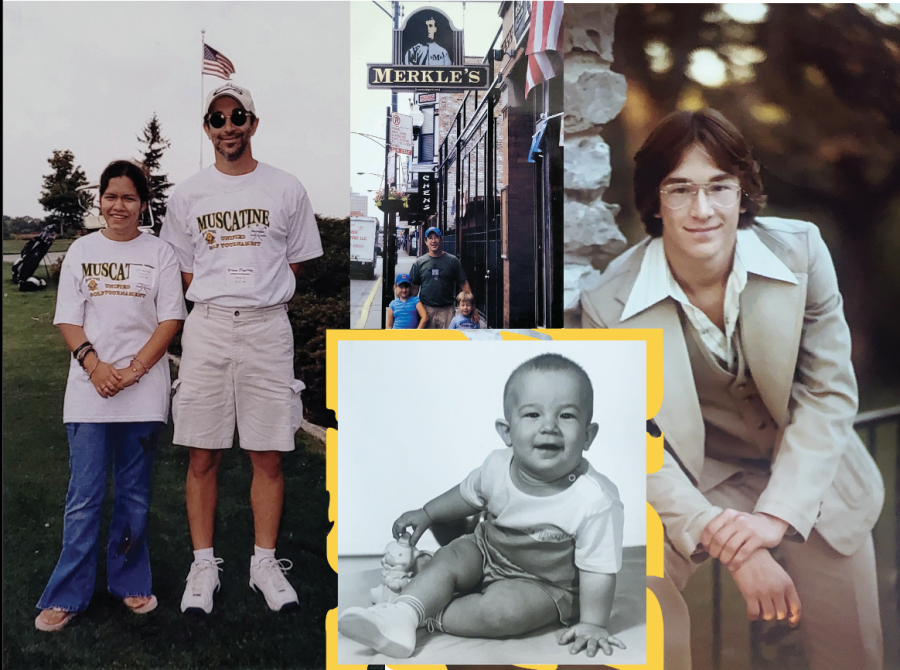Steve Merkle’s journey to special education took many unexpected turns, but his love for learning and helping others was a constant.
Before West
Throughout his time at West, Steve Merkle has been a light in and outside of the school community. He has worked as a special education teacher for 30 years, 24 at West, but his teaching journey started years before when he set out to become a woodworking teacher.
“I thought I was going to go be a teacher, and I loved working with wood. I loved my industrial arts classes; [they were] probably the classes I did the best in. I sometimes struggled with academics, and so I really thought that was my path,” Merkle said.
Merkle’s parents were educators, with his dad serving as a high school principal and his mom as a teacher. Merkle followed in their footsteps by attending the University of Northern Iowa. After graduating, he found it difficult to find open job positions, as woodworking declined in popularity and was considered a less useful skill for students to learn. Merkle tried teaching industrial tech; however, he didn’t feel the role was right for him.
“I really struggled to find a job that I thought I would be good at or was qualified for because I was interviewing for graphic arts and computer tech stuff, and [interviewers] just didn’t feel I was that knowledgeable,” Merkle said.
Eventually, Merkle got a job at Grinnell Middle School in Grinnell, Iowa as a paraeducator substitute teacher. While in this position, he observed many special education classes.
“I realized I really liked this special ed class. Then in the summer, I decided to go back [to school] and get my master’s degree,” Merkle said. “I think I matured a bit over those five years of being out of school and started getting really good grades in college for my master’s degree.”
Merkle found his position in Grinnell fulfilling.
“I did it for about a year, and I really loved it,” Merkle said. “That’s when I [realized] I wanted to be a [special education] teacher.”
Following this experience, Merkle was offered a job in Atlantic, Iowa as a special education teacher. Merkle realized that initially struggling in his job search was a blessing in disguise.
“They needed special ed teachers badly, so they hired me halfway into my required 30 hours of special ed teacher [training]. I really loved it in Atlantic,” Merkle said.
Merkle connected with special education due to its more individualized approach to teaching and learning. He enjoys finding what each student needs and how he can help them.
“I think [students] have to learn [their] skills, and as a teacher, I need to learn how to identify those in special education kids and teach them techniques or ways to do things,” Merkle said.
Merkle’s understanding of the diverse needs of students comes from his own experiences as a young student. As a sixth-grader, Merkle received academic support when a special education teacher taught him about executive functioning — a mental process that allows one to focus and plan successfully through lists and schedules.
That was a big changing point in my life. I had to rethink how I saw [learning],” Merkle said. “That’s where I really started turning my educational and academic challenges around.”
Since learning more about his ideal learning approach, Merkle feels he is better equipped to help students, especially those in special education.
“My struggles definitely taught me … you’ve got to learn how to find the right people to help you, and teachers’ jobs are to do that,” Merkle said.
Merkle emphasizes how learning is a lifelong process.
“Surprise! If you’re thinking you’re going to go to college and be done [with learning], that’s not usually how [it works]. [You] continue to educate yourself throughout life,” Merkle said.

